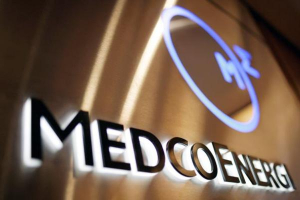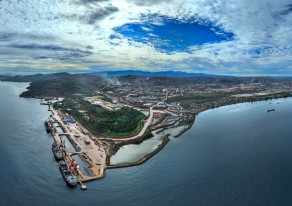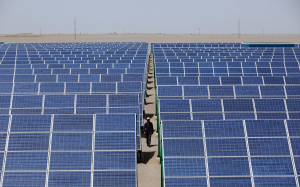Kalbe Farma allocates IDR 1 trillion to achieve 15% growth target
Privately owned pharmaceutical company PT Kalbe Farma Tbk (KLBF) has allocated IDR 1 trillion (US$ 65.9 million) Capital expenditure (Capex) to achieve revenue growth of 15% or IDR 33 trillion in 2023.
Established in 1966, Kalbe Farma is one of the largest pharmaceutical companies in Southeast Asia with around US$ 5 billion in market capitalization and revenues of over IDR 15 trillion. It provides a wide range of healthcare products and services, including prescription drugs, consumer health products and nutritional supplements. The company signed a Memorandum of Understanding with Genexine Inc. of South Korea in May 2020 to develop a vaccine for the COVID-19.
Capex allocation and revenue growth target
Kalbe Farma's allocated Capex in 2023 would be similar to the 2022's.
"This year's Capex is still being calculated and we'll explain the details next month. We estimate it's around IDR 1 trillion to IDR 1.5 trillion. Sources of funds can be from internal or in combination with external bank facilities," CEO Vidjongtius said, as quoted by bisnis.com on February 7, 2023.
According to Vidjongtius, the Capex realization will likely be the same as in 2022 since there are no delayed investments.
Kalbe Farma targeted 2023's growth of 10%-15%. In September 2022, the company recorded net sales of IDR 21.18 trillion, a 10.9% year-on-year (YoY) increase.
"We are projecting [sales] around IDR 33 trillion," said Director Sie Djohan on February 3, 2023.
The company focuses on the advancement of biological products, such as the monoclonal antibody known as Rituxikal. Its product recently received approval for distribution from the Food and Drug Monitoring Agency (BPOM).
Risks in pharmaceutical business
There are several challenges in pharmaceutical business in general and for Kalbe Farma in particular, according to Djohan. The market penetration of biological-based drug products remains very low while in fact, the demand is quite high.
"Actually, there are a lot of needs, but the accessibility so far cannot be fulfilled because all the products are still imported," he added.
Furthermore, Djohan explained that imported biological-based drug products were sold at relatively high prices. Therefore, the government has expressed hope to produce these items locally.
Already have an account? Sign In
-
Start reading
Freemium
-
Monthly Subscription
30% OFF$26.03
$37.19/MonthCancel anytime
This offer is open to all new subscribers!
Subscribe now -
Yearly Subscription
33% OFF$228.13
$340.5/YearCancel anytime
This offer is open to all new subscribers!
Subscribe now






